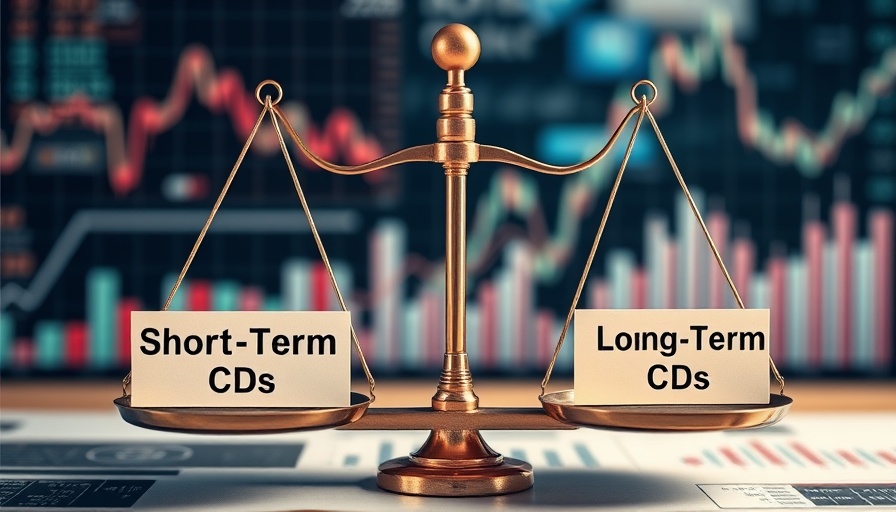
Short-Term vs Long-Term CDs: A Smart Choice for Your Future
When it comes to investing, one of the fundamental dilemmas people face is whether to go for short-term or long-term certificates of deposit (CDs). As people plan for their retirement, understanding the benefits and drawbacks of each option becomes crucial. But what does each choice mean for your financial journey? Let’s break it down.
Understanding Certificates of Deposit
Certificates of deposit are savings accounts that typically offer higher interest rates than regular savings accounts. When you purchase a CD, you agree to leave your money in the account for a defined period in exchange for a fixed interest rate. Most CDs range from a few months up to several years. The appeal of CDs lies in their safety; they are insured by the FDIC up to $250,000, making them a stable investment option for retirement planning.
Short-Term CDs: Flexibility with Less Risk
Short-term CDs usually have maturities ranging from three months to one year. They are appealing because they allow you to access your money relatively quickly if needed. If interest rates rise, short-term CDs enable you to reinvest your funds at a higher rate sooner than longer-term options. This can be beneficial as economic conditions change. However, the trade-off is that short-term CDs generally offer lower interest rates compared to their long-term counterparts.
Long-Term CDs: A Commitment with Higher Returns
On the other hand, long-term CDs, which can last for several years or even up to ten years, typically offer higher interest rates. This option might seem attractive for those looking for consistent, predictable growth of their savings over a longer period. However, the downside is the requirement to leave your money untouched for the term duration. If you need to withdraw your funds early, you may face penalties, which could erode some of your earnings. Therefore, careful consideration of your liquidity needs is essential.
Understanding Your Financial Landscape
As you weigh your options between short-term and long-term CDs, think about your financial goals and current market conditions. How likely is it that you’ll need access to your money in the near future? Do you anticipate a significant change in interest rates that could affect your decision? Taking stock of your personal situation can guide you toward the right choice.
Future Predictions: What Lies Ahead?
Experts believe that interest rates could continue to rise, which may result in higher rates for short-term CDs. This ongoing change in the financial landscape means that flexibility will be crucial. If you invest in short-term CDs, you might be able to take advantage of higher rates sooner. On the flip side, if you lock in a long-term CD, there’s a chance you might miss out on better returns in the future.
Setting Your Priorities for Retirement
As you get closer to retirement, consider how each option will align with your retirement strategy. If you are risk-averse or want guaranteed returns, long-term CDs might be the better choice. However, if you prefer adaptability in your investments, short-term CDs could provide more benefits. Ultimately, a combination of both might also be a wise approach, enabling you to balance safety and flexibility.
Actionable Insights: Making Your Decision
Before deciding on whether to choose short-term or long-term CDs, consider these actionable insights:
- Understand your liquidity needs: If you might need cash soon, opt for a short-term CD.
- Keep track of interest rates: Monitor the economic climate to determine the best time for investing in CDs.
- Diversify your investments: Combining both short- and long-term CDs can provide stability and growth for your retirement portfolio.
Conclusion: Your Financial Future Awaits
Making informed decisions regarding your investment strategy, especially when it comes to options like CDs, is essential for securing your financial future. Short-term and long-term CDs both come with their unique sets of pros and cons. As you consider your options, reflect on your financial goals and strategies. Begin planning today to ensure a sustainable and comfortable retirement.
 Add Row
Add Row  Add
Add 




 Add Row
Add Row  Add
Add 

Write A Comment